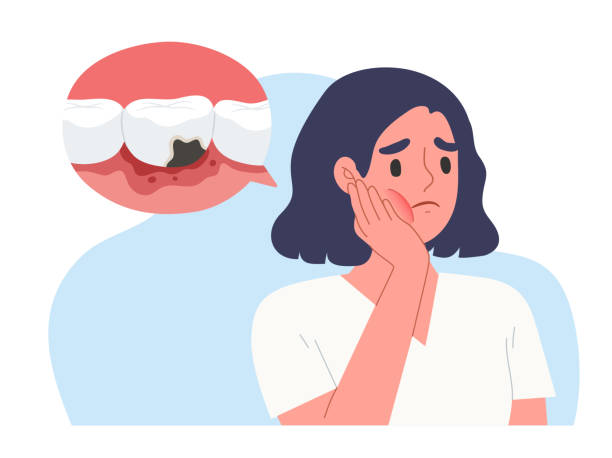Introduction
Tooth pain can strike out of nowhere—sometimes mild and temporary, other times sharp and unbearable. Whether it’s a dull ache or sudden shooting pain, it’s your body’s way of signaling that something may be wrong. While occasional sensitivity can be harmless, persistent or severe tooth pain often requires professional attention.
In this guide, we’ll explore the most common causes of sudden tooth pain and help you understand when it’s time to see a dentist.
Common Causes of Sudden Tooth Pain
1. Tooth Decay (Cavities)
One of the leading causes of tooth pain is tooth decay. Cavities form when bacteria in the mouth break down food particles and create acids that erode tooth enamel. Once decay reaches the inner layers of the tooth, pain and sensitivity become more noticeable.
Signs to watch for:
- Sharp pain when eating sweets
- Visible holes or dark spots on teeth
- Sensitivity to hot or cold foods
2. Gum Disease (Gingivitis or Periodontitis)
Gum problems can also trigger sudden pain. Early gum disease, or gingivitis, may cause swollen or bleeding gums, while advanced periodontitis can expose tooth roots and lead to discomfort.
Possible symptoms:
- Red, swollen, or tender gums
- Bad breath
- Pain while chewing
3. Tooth Sensitivity
If you feel pain when eating hot, cold, or acidic foods, you may have sensitive teeth. This can happen when enamel wears down or gums recede, exposing the sensitive dentin underneath.
Triggers include:
- Ice-cold drinks
- Hot coffee or tea
- Sweet or sour foods
4. Dental Abscess
A tooth abscess is a serious infection that develops at the root of a tooth or in the surrounding gum tissue. It causes intense, throbbing pain that can spread to the jaw, ear, or neck.
Other signs of an abscess:
- Swollen gums or face
- Fever
- Pus around the affected tooth
This condition requires immediate dental treatment.
5. Teeth Grinding (Bruxism)
Many people grind or clench their teeth—especially during sleep—without realizing it. Over time, this can wear down enamel and cause sudden tooth pain or jaw discomfort.
Clues you may be grinding:
- Morning jaw stiffness
- Flattened or chipped teeth
- Headaches upon waking
6. Cracked or Damaged Tooth
Sudden pain when biting down could mean you have a crack in your tooth. Cracks may not always be visible but can expose nerves, causing sharp pain.
7. Sinus Infection
Surprisingly, a sinus infection can also cause tooth pain—particularly in the upper molars. The pressure from inflamed sinuses pushes on nearby nerves, creating discomfort similar to dental pain.
When Should You Visit a Dentist?
Not every toothache requires urgent care, but some situations should never be ignored. Seek dental attention if you experience:
- Severe or persistent pain lasting more than 1–2 days
- Swelling in the gums, face, or jaw
- Fever or chills alongside tooth pain
- Difficulty opening your mouth or swallowing
- Pus or foul-tasting discharge around the tooth
These may indicate infections or other serious issues that need prompt treatment.
Home Remedies for Temporary Relief
While waiting to see your dentist, you can manage discomfort with these temporary solutions:
- Saltwater rinse: Helps reduce inflammation and clean affected areas.
- Cold compress: Apply to the outside of your cheek to numb pain and reduce swelling.
- Over-the-counter pain relievers: Ibuprofen or acetaminophen may help ease discomfort.
- Clove oil: A natural remedy with mild numbing properties.
⚠️ Remember, these remedies only provide temporary relief and do not replace professional dental care.
Preventing Sudden Tooth Pain
The best way to avoid unexpected dental issues is through prevention. Keep your teeth and gums healthy with these habits:
- Brush twice daily with fluoride toothpaste
- Floss daily to remove plaque and food particles
- Visit your dentist regularly for checkups and cleanings
- Limit sugary snacks and drinks
- Wear a mouthguard if you grind your teeth at night
Conclusion
Sudden tooth pain should never be ignored. While minor sensitivity can sometimes resolve on its own, sharp, throbbing, or persistent pain often signals a deeper issue like decay, infection, or gum disease. Knowing the common causes can help you identify potential problems, but only a dentist can provide the right diagnosis and treatment.
If you’re experiencing sudden tooth pain that doesn’t go away, it’s always best to schedule a dental appointment sooner rather than later. Early care can prevent more serious complications—and save your smile.

